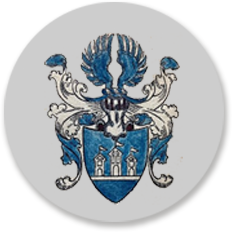The Johann David Herstatt Family
Johann David Herstatt used his freed-up capital, put it increasingly into financial transactions and founded the J.D. Herstatt banking house (called the Old Banking House) in 1792.
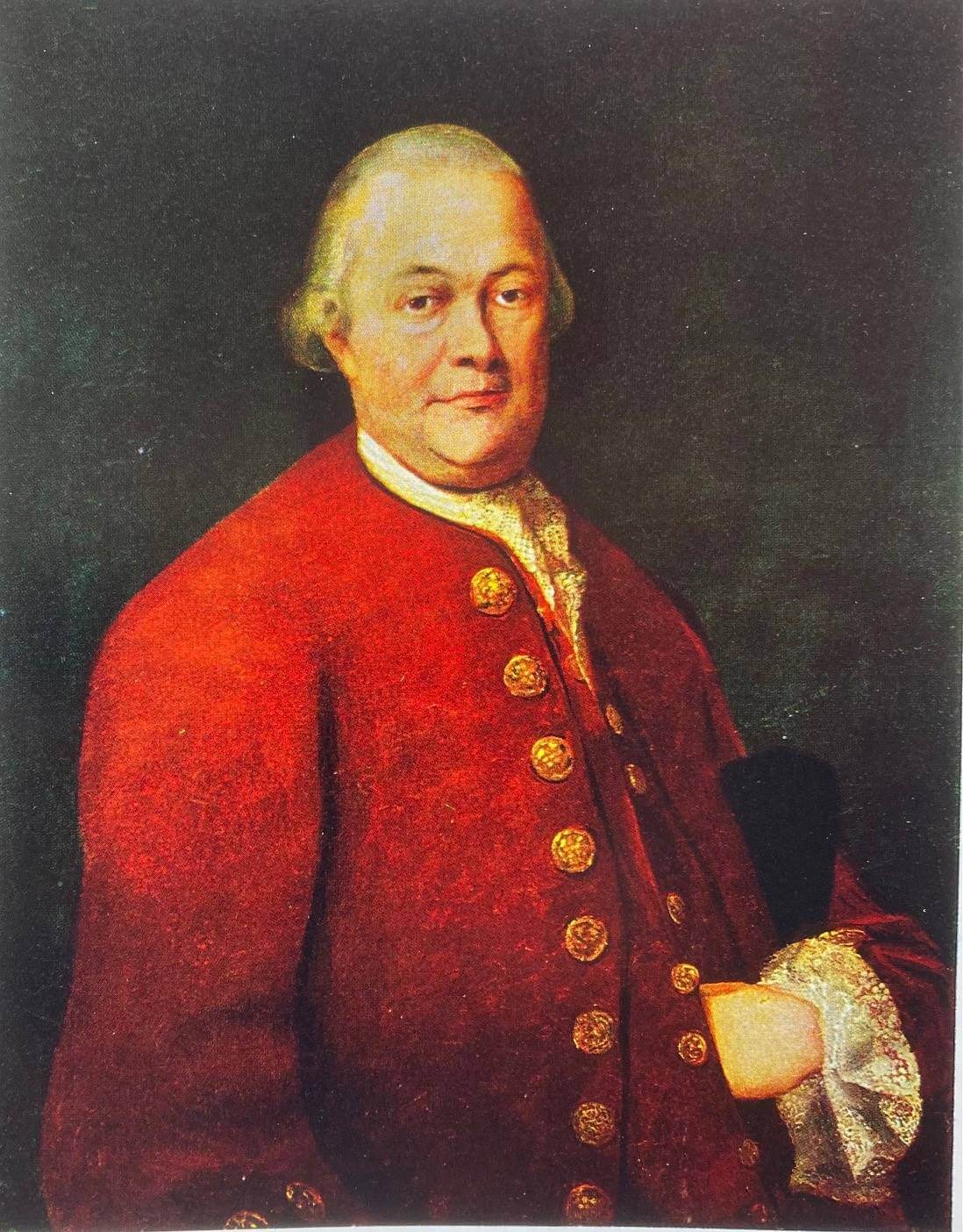
Johann David Herstatt (1740-1809)
Due to the international business of his silk trade, he was very familiar with finance and especially the bill of exchange business for many years. The J.D. Herstatt banking house grew considerably and led the family to great prestige and prosperity. After the death of the father, the management of the bank was passed on to the eldest son for four generations. These were successively:
– Johann David Herstatt (1740-1809), married to Adelaide von der Leyen (1737-1808)
– Friedrich Peter Herstatt (1775-1851), married to Frederike von der Leyen (1774-1821)
– Johann David Herstatt (1805-1879), married to Amalie Stein (1810-1890)
– Friedrich Johann David Herstatt (1831-1888) , married to Theresie DuMont Schauberg (1850-1933)
It is certainly noticeable that there was a close friendship with the Krefeld noble family von der Leyen, who were also involved in the production and trade of silk, which still exists today. Several marriages took place within the two families.
Johann David Herstatt (1740-1809) was an extraordinarily committed citizen of the city of Cologne in addition to his banking business. He was an alderman in the city council and founded the voluntary fire brigade.
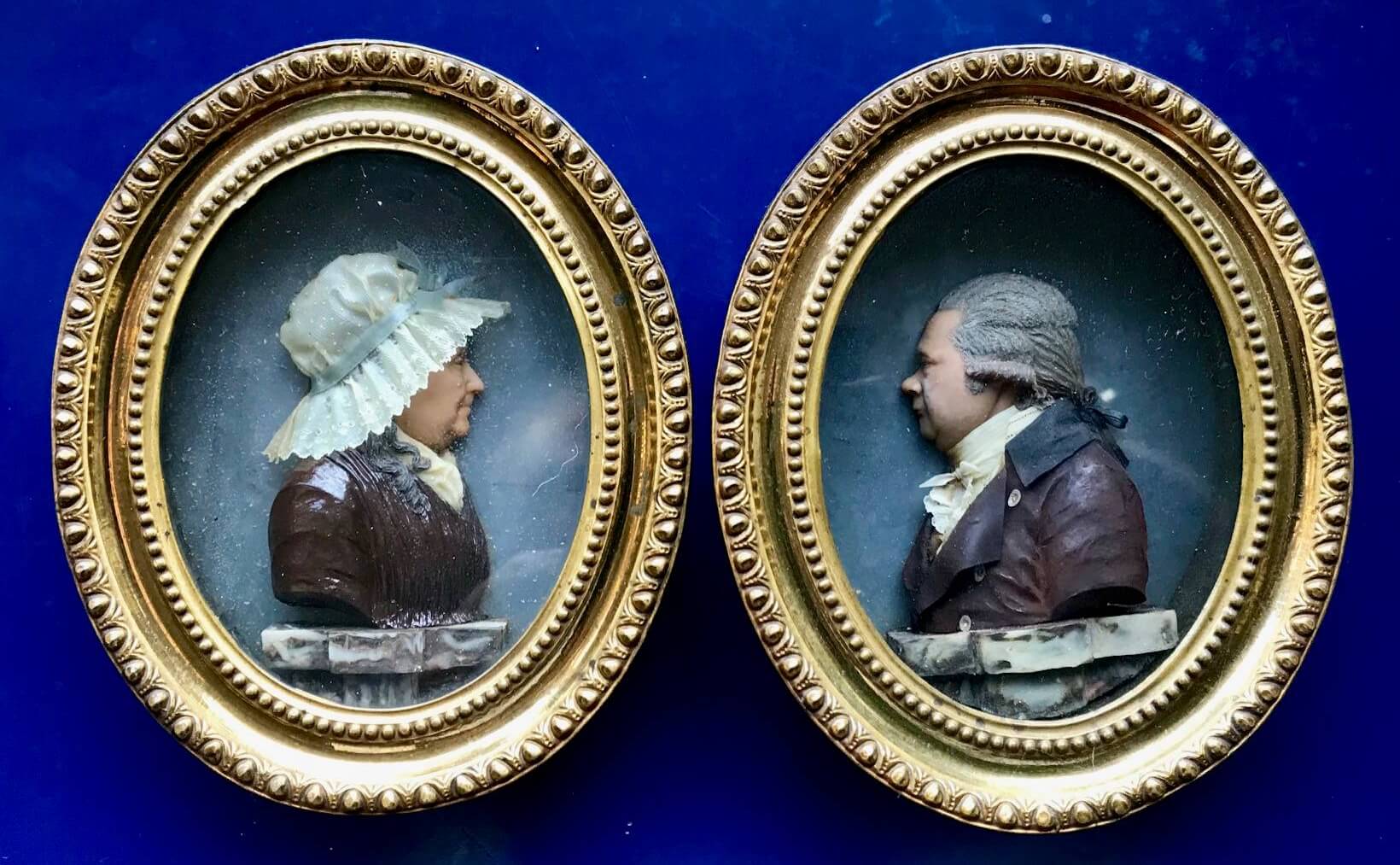
Friedrich Peter Herstatt (1775-1851)
His son Friedrich Peter (1775-1851) was also an alderman of the city council and rose to the position of Kommerzienrat. His transfer of a 10-acre site enabled Melaten to be developed into the central cemetery of the city of Cologne. Friedrich Peter then received the distinction of “Geheimer Kommerzienrat”, which came with the honour of offering King Friedrich III accommodation in his house at Hohe Pforte 25 in September 1818. Unfortunately, the King’s negotiations at the Aachen Congress did not go as planned, so the overnight stay was cancelled and only a change of horses took place there. For his great services, Friedrich Peter Herstatt also received the decorations of Knight of the Prussian Order of the Red Eagle and of the French Legion of Honour. Both decoration can be seen on his portrait and his still existing signet ring. His son Johann David Herstatt (1805-1879) successfully continued the banking house in the spirit of his ancestors.
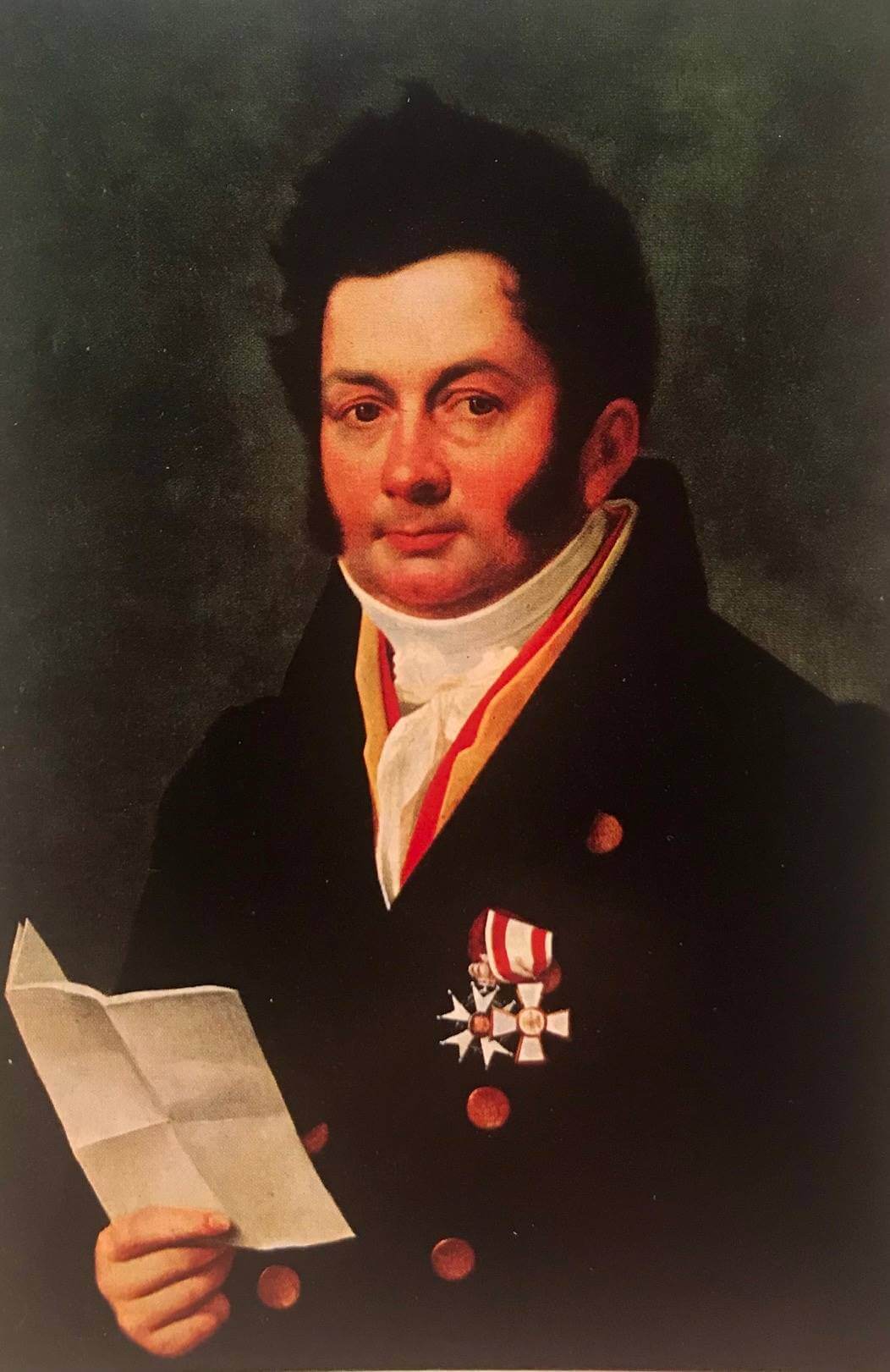
Johann David Herstatt (1805-1879)
Johann David Herstatt was married to Amalie Stein, from the Johann Heinrich Stein banking family, which created a close relationship between the two banking houses.
Johann David handed over the banking business to his son Friedrich Johann David (1831-1888), an extraordinarily capable and successful personality.
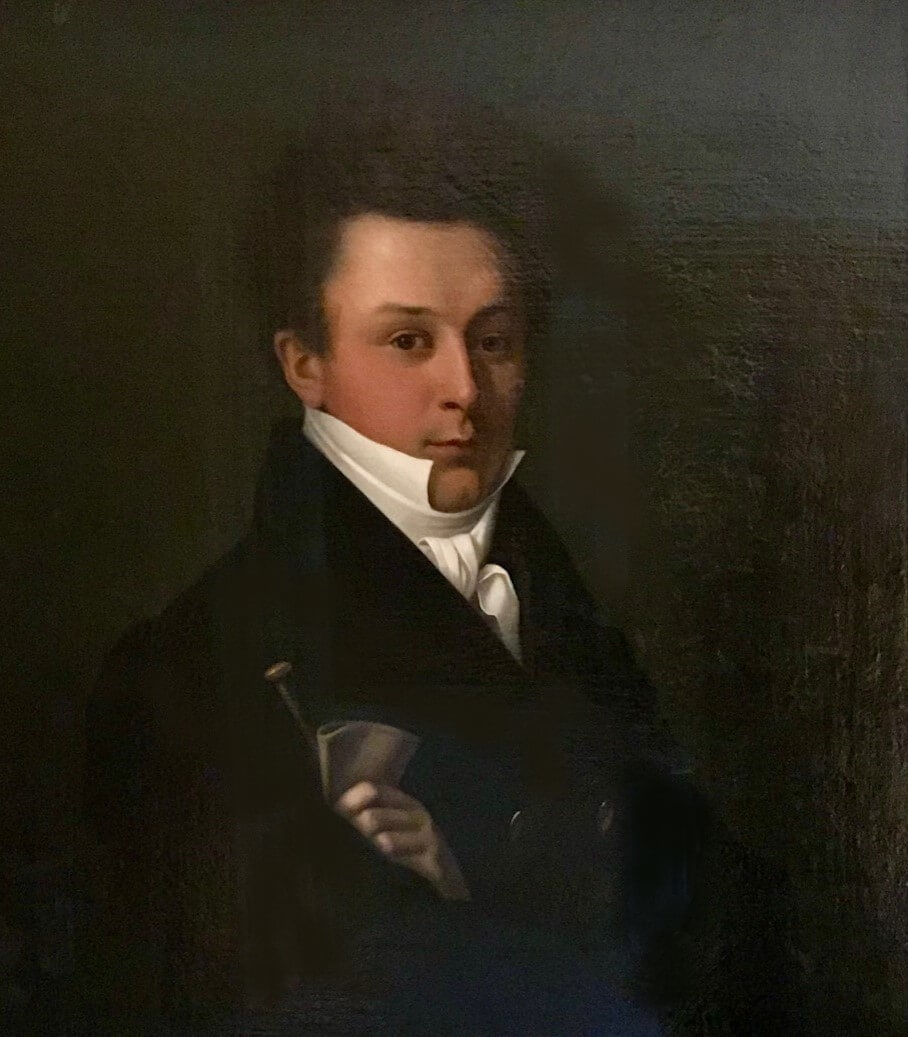
Friedrich Johann David Herstatt (1831-1888)
Friedrich Johann David Herstatt was president of the Cologne Chamber of Commerce for several years and a member of the supervisory board of several large Cologne companies, including Colonia Versicherung, Agripina Versicherung and Kölnische Hagel Versicherung. On 17 January 1888, the Herstatt family met a fate still felt today. Friedrich Johann David died in 1888 at the age of only 56 as a result of pneumonia. His only son Johann David gen. Iwan David Herstatt (1887-1955) was only 1 year old and was therefore not considered as an immediate successor. When none of Friedrich Johann David’s three brothers, Arthur, Eduard and Walter, agreed to take over the banking business, the family decided to place the Herstatt banking house in the hands of the related J.H. Stein banking house. This brought a long banking tradition to an abrupt end.
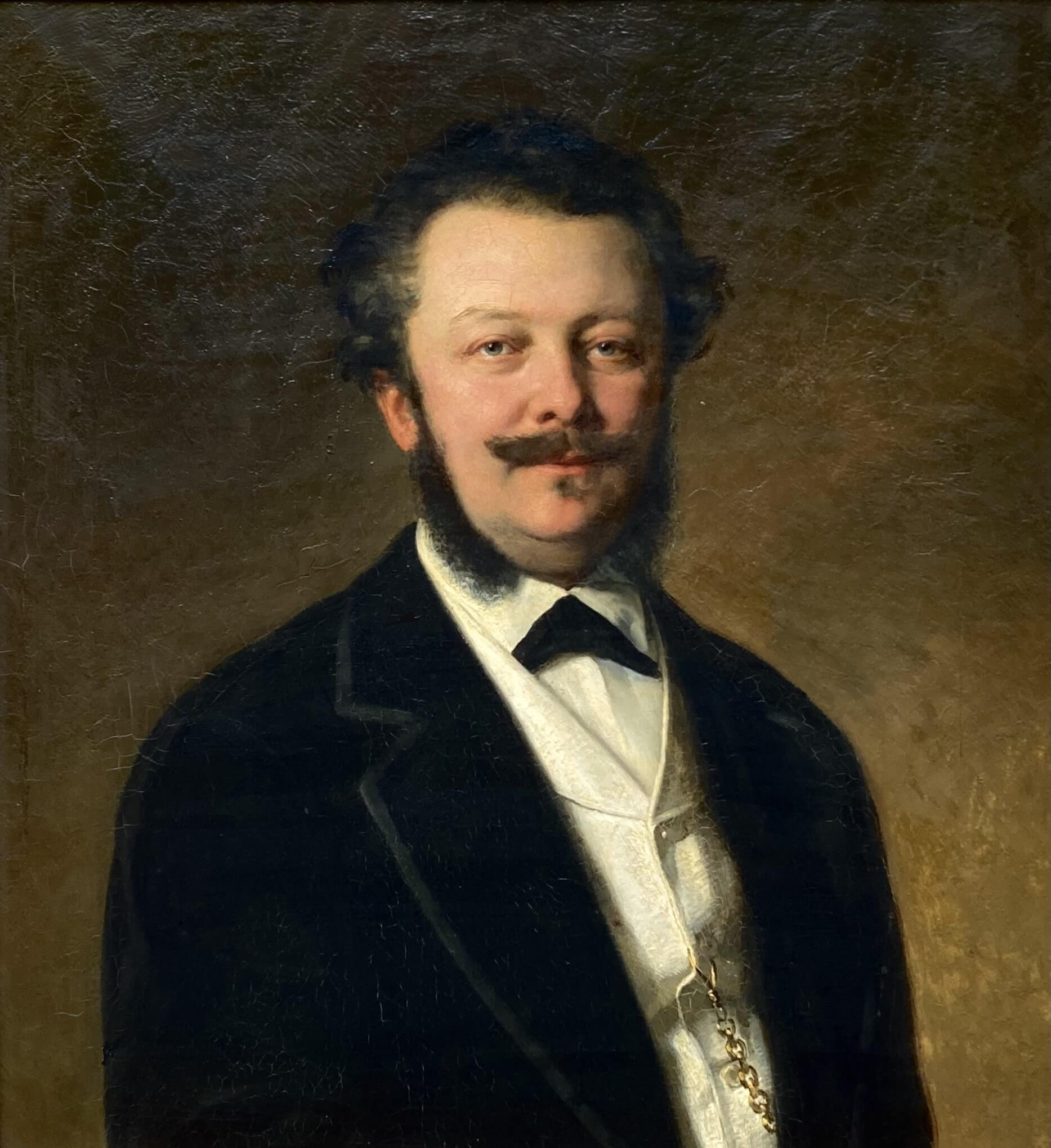
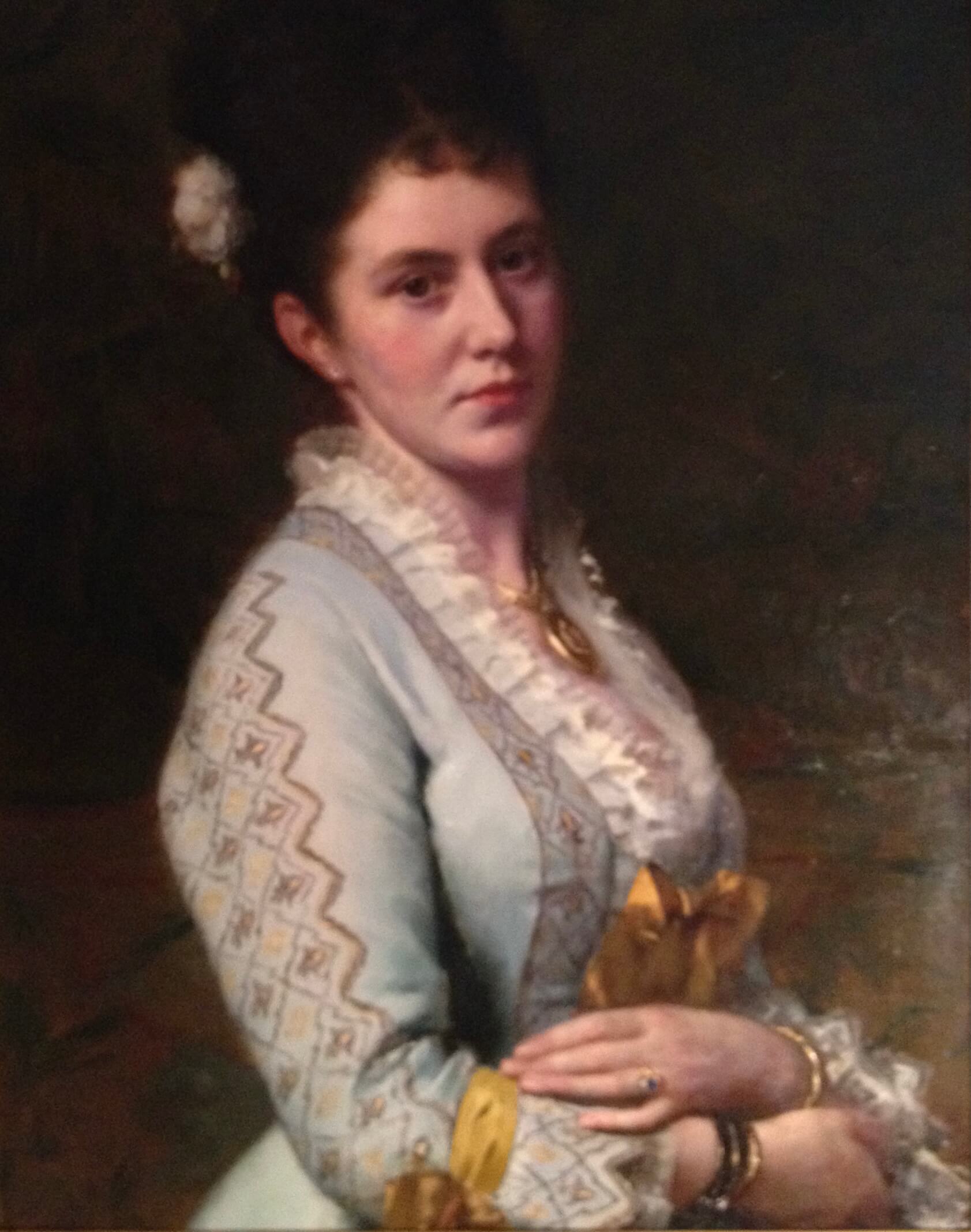
Johann David Herstatt gen. Iwan (1887-1955)
The son Johann David Herstatt (1887-1955) was named Iwan from birth because the parents had a coachman with the name Johann for many years and they wanted to avoid confusion. Socially, as was probably already the attitude at the time, another name was not forced on the coachman, which would have been the more usual way at the time.
Iwan grew up sheltered together with his three older sisters Amélie, Stefanie and Maria with his mother (Theresia Herstatt, née DuMont Schauberg) in high affluence, studied and obtained a doctorate in law and business administration. He married Clara Schnitzler (1883-1981), daughter of Victor Schnitzler and Ludowika von Borell du Vernay, a highly respected donator family from Cologne.
Iwan Herstatt (1887-1955) was very interested in art and music and was a great promoter of this scene.
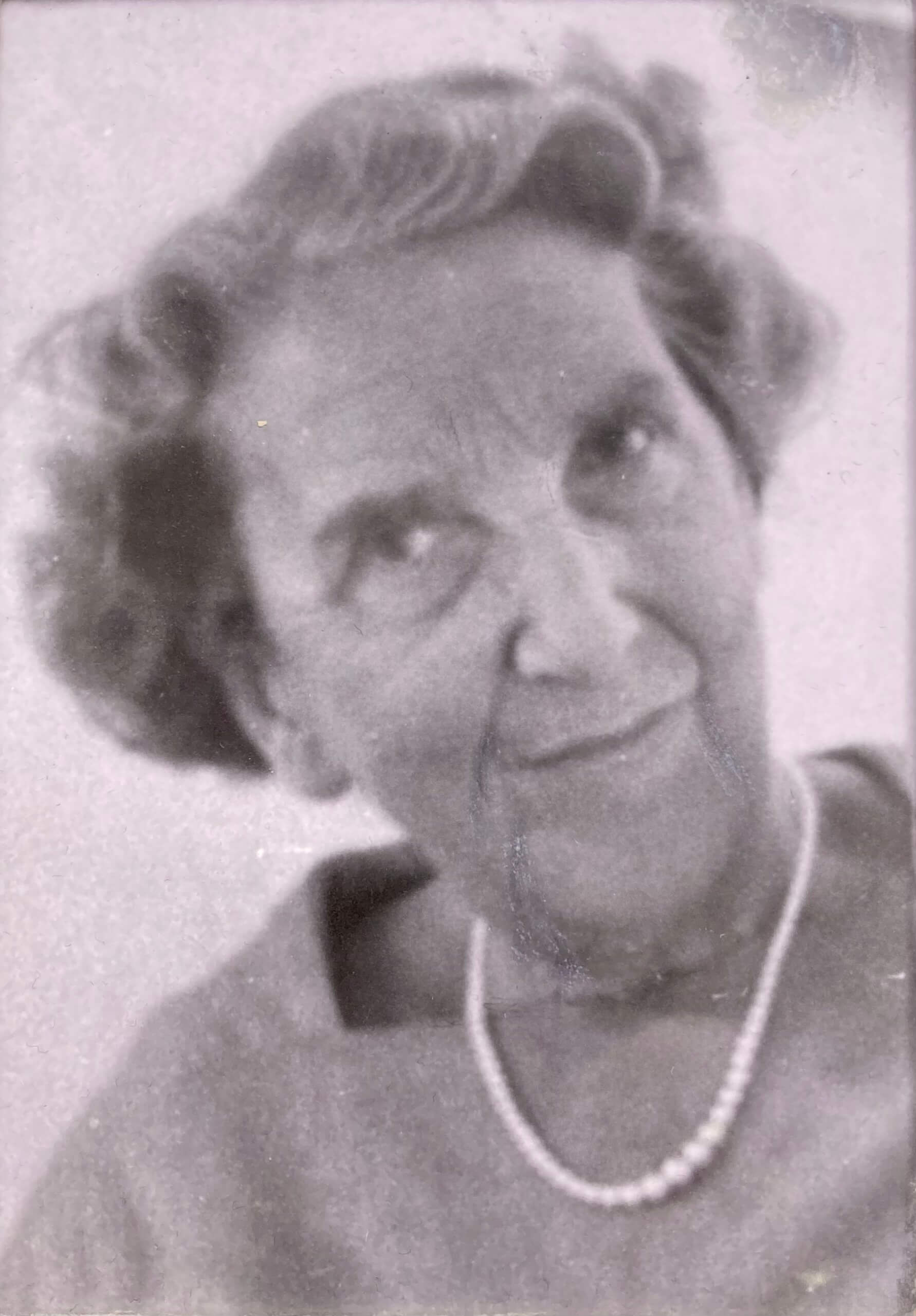
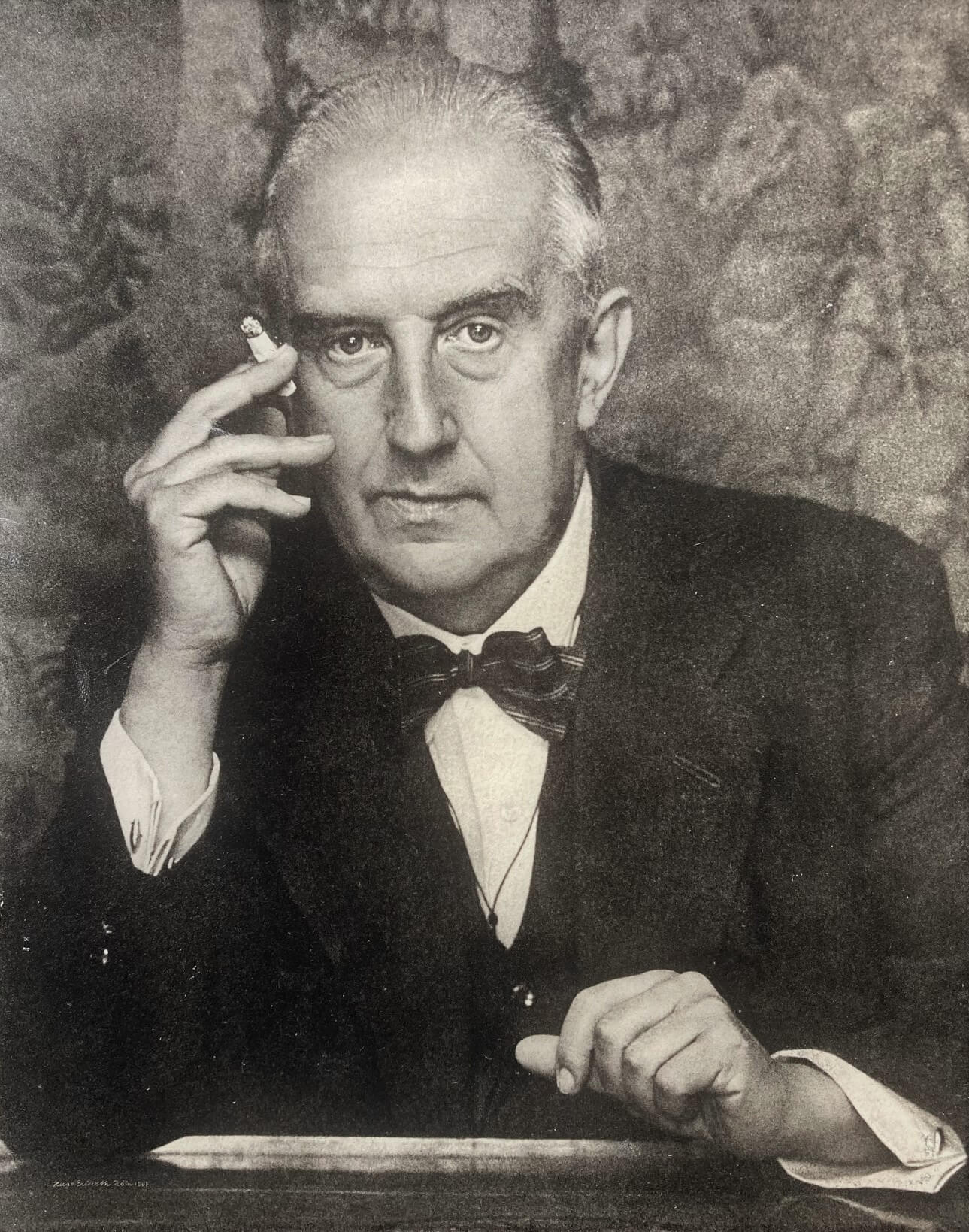
Bankhaus Leopold Seligmann
Since he too felt the need to uphold the family tradition, he joined his cousin Artur Deichmann as a personally liable partner in the long-established banking house Leopold Seligmann, which was run by Paul and Leopold Seligmann.
Artur Deichmann left the bank in the 1920s and lived as a private citizen in Bad Godesberg. The banking crisis and large investments in later worthless war bonds led to the closure of Bankhaus Seligmann in 1931. As a personally liable partner, Iwan Herstatt (1887-1955) paid a high proportion of the bank’s debts and thus lost the large fortune he had inherited from his parents, a far greater financial loss than that suffered by his son Iwan D. in 1974. Iwan Herstatt (1887-1955) had already turned to insurance in 1927 and worked for the Allianz insurance company. He was thus able to quickly regain his professional footing and became deputy director of the Allianz branch in Cologne.
Iwan David Herstatt (1913-1995)
His son, Iwan David Herstatt (1913-1995) was, against tradition, not named Johann David, but now named after his father Iwan David by birth certificate.
The disaster that the Seligmann banking house had brought upon the family had a decisive influence on the son Iwan D. Herstatt (1913-1995). At least he wanted to do everything better than his father. Principles such as efficiency, diligence, punctuality, reliability and also striving for success and recognition were already internalised by him at a young age. At the age of 16, after skipping two grades, he took his Abitur and wrote in his Abitur essay that his greatest goal was “to continue the tradition of the Herstatt family and to rebuild the Herstatt banking house”. He did not have the financial means to go to university, so he decided to do a banking apprenticeship at Deutsche Bank, where he became the youngest director at the age of 27. In 1947, he transferred to the Hessian banking supervisory authority for two years, returned to Cologne to build up the Bank für Gemeinwirtschaft in Cologne, and in 1955 was given the chance to resurrect Bankhaus I.D. Herstatt with investor money.
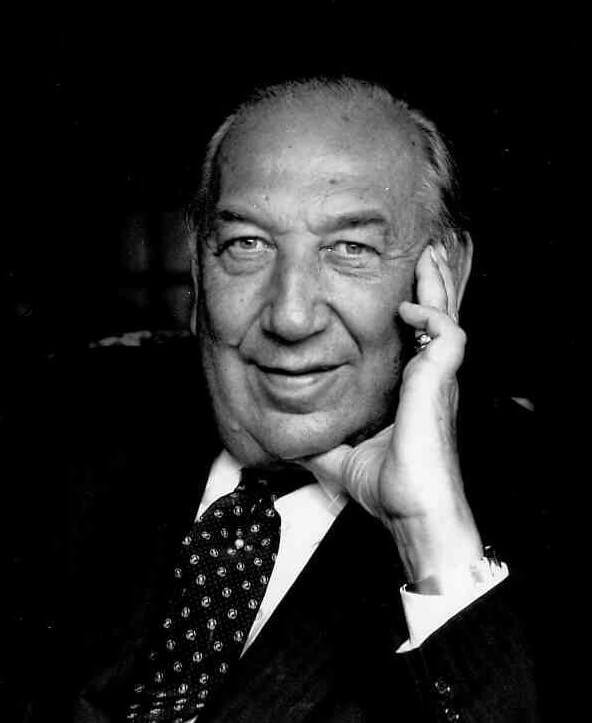
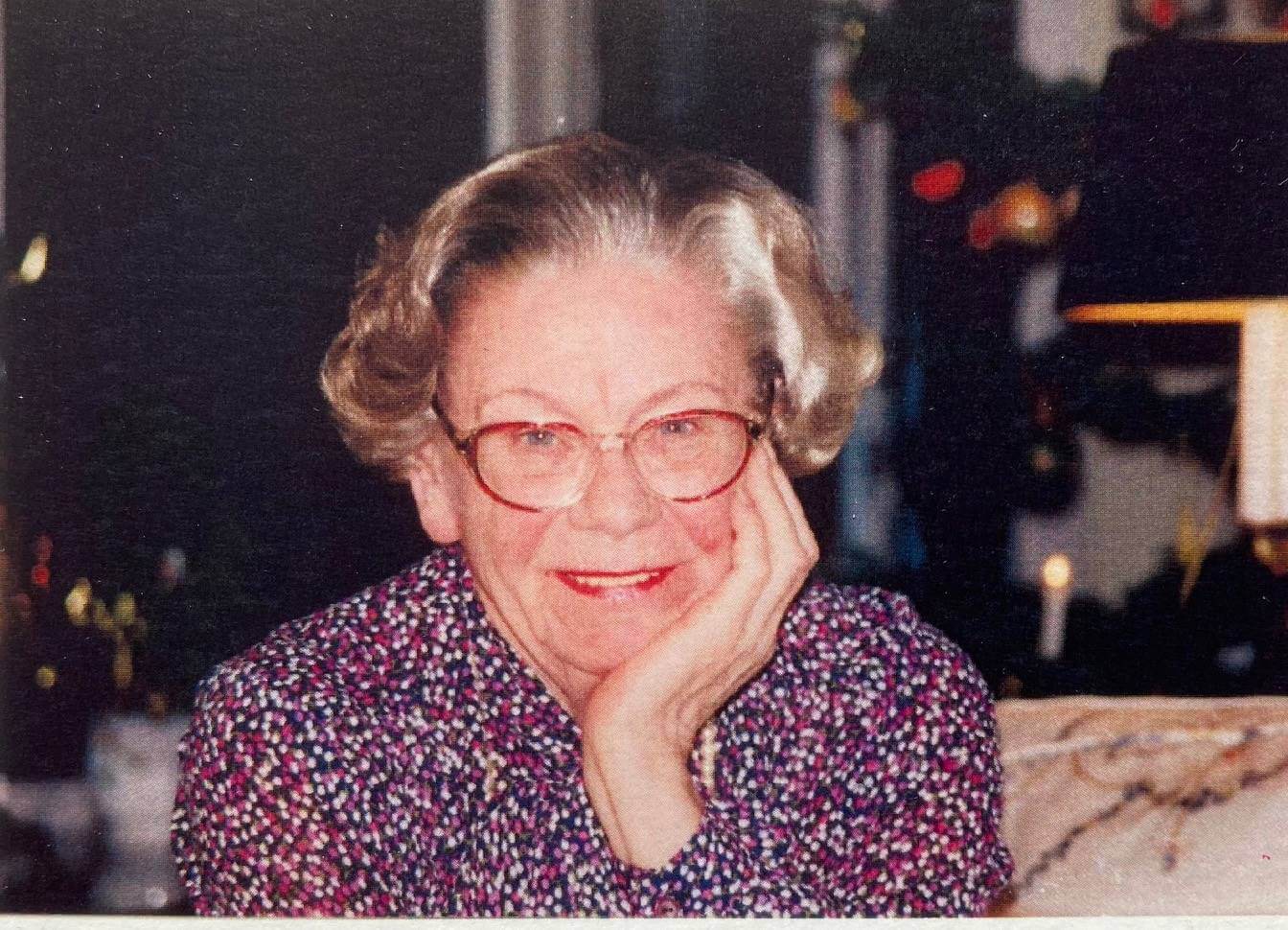
Within just under 20 years, he managed to build the company into Germany’s largest private bank. In 1974, the world collapsed for him with the insolvency of Herstatt Bank. In his book “Die Vernichtung” (The Destruction), he describes in detail how he lost his life’s work through fraudulent machinations. The particular tragedy of the story is that although Iwan D. wanted to do everything differently from his father, the same fate befell him. When he realised this, his father became the focus of the family again and Iwan D. gave his children an image of their grandfather as he really was, highly educated, well read, extremely amusing and extremely popular. The sea of flowers at his funeral in 1955 gave an idea of what a popular and respected personality he was in Cologne.
Iwan D. Herstatt was married to Ilse Gerstenberg (1921-2007) from an old watchmaker family from Wiesbaden. They had four children together Claudia Ludowika Herstatt (1948-2012), Friedrich Peter Herstatt (1950), Johann David Herstatt (1952), Cornelius Herstatt (1959).
Influence on the next generation
Because of the rarity of the name, the bank’s insolvency and the subsequent lawsuits have had a significant impact on the children’s lives. In the whole world (with one small exception) there are currently only eleven people with the name Herstatt. Friedrich Peter had a complete international banking education. He no longer saw any opportunities for himself in the banking business and had therefore turned to the industrial and real estate sectors. Claudia Ludowika lost her permanent job as an editor and was not allowed to write under her name. Johann David’s wife wanted to become a judge in Cologne, but she was told that with the name Herstatt she could not get a judgeship as long as all the trials in the Herstatt case were still going on. Johann David had completed his banking apprenticeship a week after the bank closed and could not get back into finance until 25 years later after a career in industry, which he would have liked to do from the beginning. Cornelius could not go to school for weeks because they were afraid for him, but was then free to choose his career path as an academic. All of Iwan D. Herstatt’s children have adopted the values and virtues of their parents and have all found their way and made a career for themselves. The next generation of Herstatts also shows great personal commitment and there is therefore no doubt that the Herstatt family will continue to exist and make its special contribution to the world even without its own bank.
